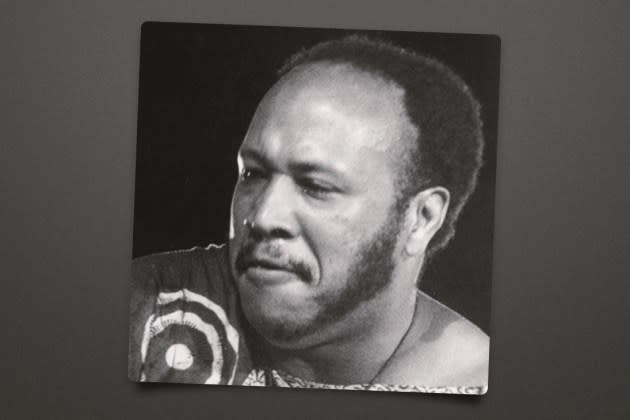Les McCann, Soulful Jazz Great Sampled by Notorious B.I.G. and Dr. Dre, Dies at 88

Soulful jazz great Les McCann, whose work was sampled by hundreds of hip-hop artists including Notorious B.I.G. and Dr. Dre, died Friday in the Los Angeles area. He was 88.
The musician, who released more than 60 albums over the course of his career, had been admitted to a hospital from the nursing care facility he’d lived in for the past four years and was diagnosed with pneumonia, his manager Alan Abrahams told The Hollywood Reporter.
More from The Hollywood Reporter
Ana Ofelia Murguía, Who Voiced Mama Coco in 'Coco,' Dies at 90
John Pilger, Australia-Born Journalist and Documentary Filmmaker, Dies at 84
In a prolific career, he was arguably best known for his 1969 Montreaux Jazz Festival performance of the protest song “Compared to What.”
McCann joined forces with saxophonist Eddie Harris and trumpeter Benny Bailey. The three hadn’t played together before, and there wasn’t time for rehearsal, according to The New York Times.
The outlet cites the liner notes for a reissue of the concert album, the Grammy-nominated Swiss Movement, in which McCann writes: “Just before we went onstage, and for the first time in my life, I smoked some hash. … [Onstage] I didn’t know where the hell I was. I was totally disoriented. The other guys said, ‘OK, play, man!’ Somehow I got myself together, and after that, everything just took off.”
Born in 1935 in Lexington, Kentucky, the mostly self-taught pianist had played sousaphone in high school band before leaving to serve in the U.S. Navy at the age of 17.
“I wanted to go to the Navy School of Music,” McCann said in a 2017 interview with the Oxford American. “In high school, whenever instruments were passed out by the school district, my school got whatever was left, whatever the other schools did not want. So I played an instrument called sousaphone, a big horn in the back of the band. I played it all through my last two years of school, only to find out when I joined the Navy it was an instrument no one else used. (Now you see ’em in every marching band.) So they sent me off to Cincinnati to take a test. They brought out a tuba, and I said, ‘Wait a minute, this is not what I play.’ They said, ‘This is all we use.’ So I said, “Please do not send me back to Lexington.’”
While in the Navy, he won a talent contest that resulted in an appearance on The Ed Sullivan Show. After he was discharged, he formed a trio in Los Angeles and landed his first contact, with Pacific Jazz in 1960, after Miles Davis heard him play in a nightclub.
McCann recalled when Davis approached him, telling the Oxford American, “The big names had already played, so I started playing, and when I got offstage, Miles came over to me: ‘How come you didn’t play when I was up there?’ I couldn’t even speak. He was my favorite of all musicians. He said, “Man, I like the way you play—very soulful.’”
He signed to Atlantic in 1968, when he discovered Roberta Flack, who also signed to the label.
“Her voice touched, tapped, trapped and kicked every emotion I’ve ever known,” McCann wrote in the liner notes for First Take. “I laughed, cried and screamed for more … she alone had the voice.”
He suffered a stroke in the mid ’90s onstage in Germany and ended up in a wheelchair but was able to keep performing.
His work has reached a new generation of fans as his music has been sampled by hundreds of hip-hop artists including Notorious B.I.G., Warren G, Slick Rick, Dr. Dre, Mobb Deep, A Tribe Called Quest, De La Soul and Naughty by Nature.
His last album, Les McCann — Never a Dull Moment! Live From Coast to Coast 1966-1977, was released on Dec. 1 and is a previously unreleased collection of live recordings, including performances from Seattle’s Penthouse jazz club in 1966 with Stan Gilbert and the Village Vanguard in 1967.
In addition to his work as a musician, he took photos while he was on tour, images that were ultimately included in the 2015 book Invitation to Openness: The Jazz and Soul Photography of Les McCann 1960-1980.
Best of The Hollywood Reporter